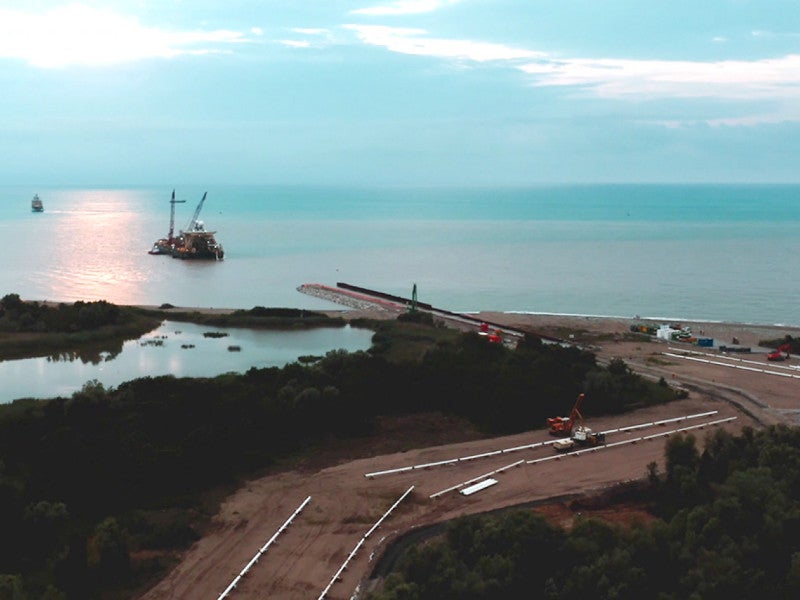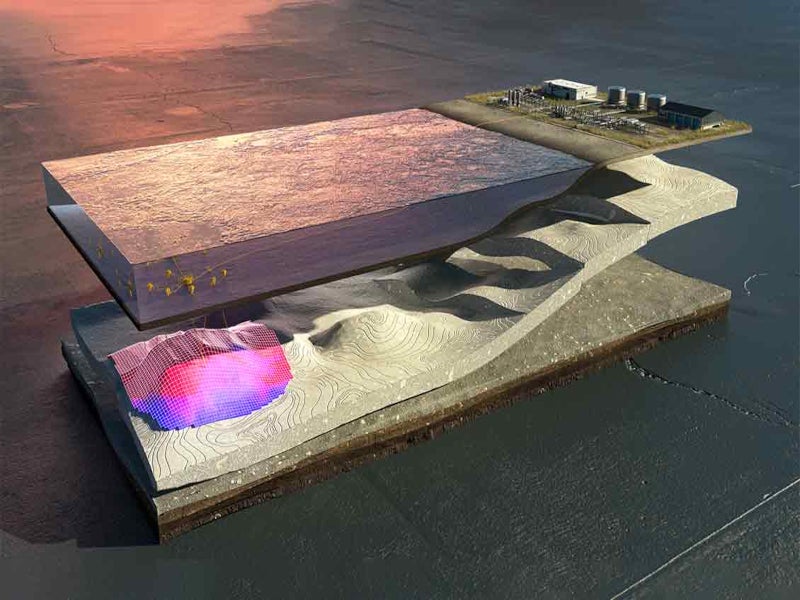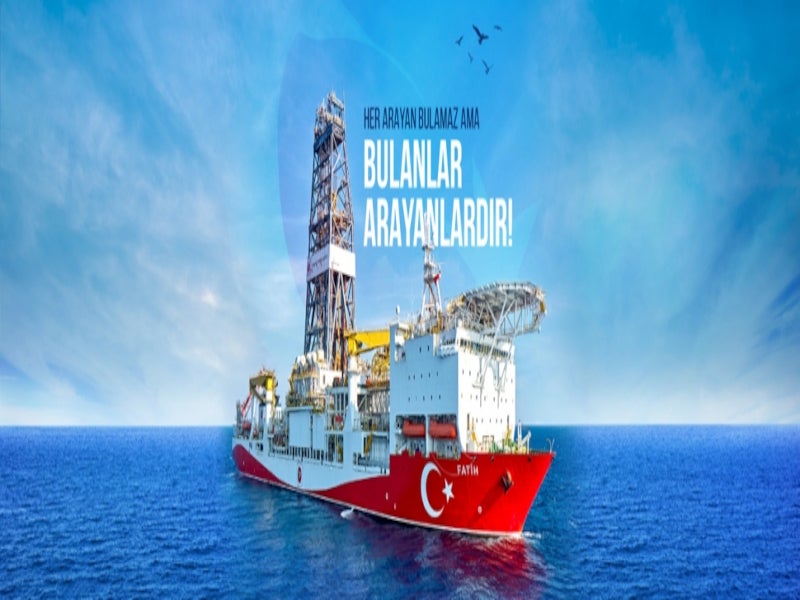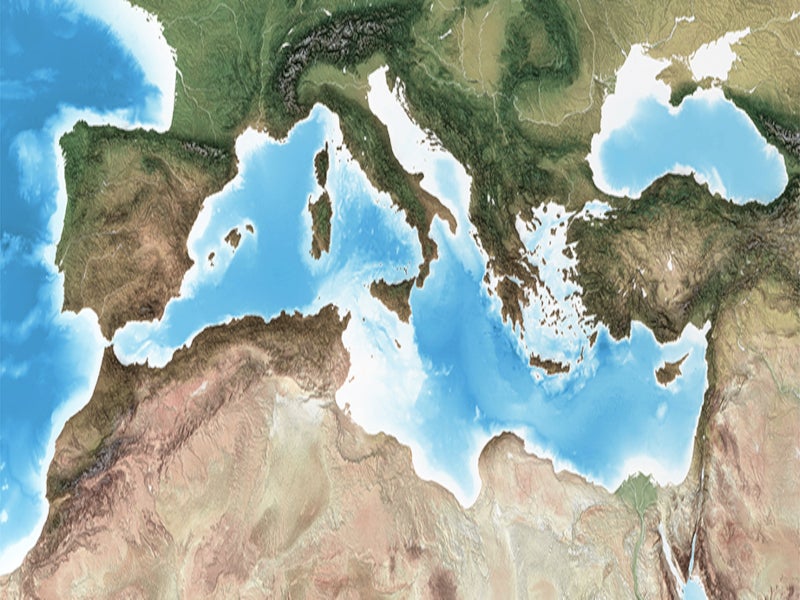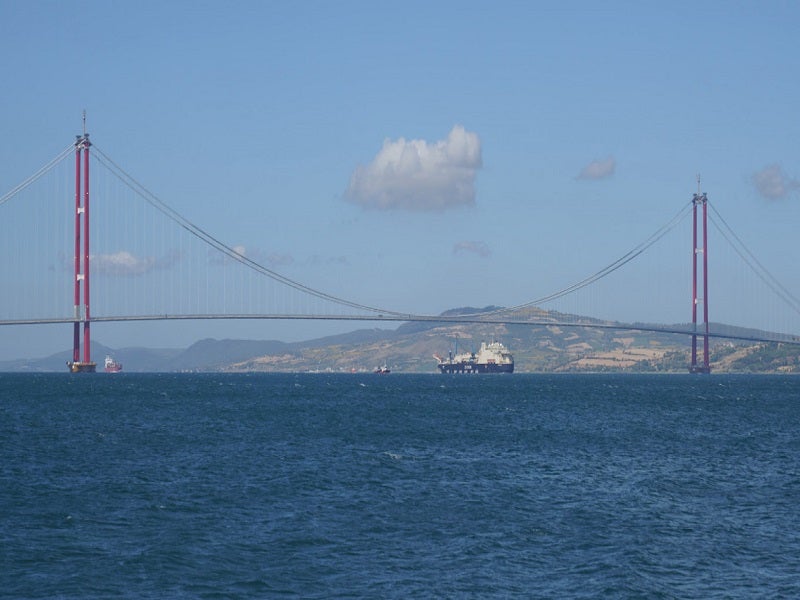The Sakarya gas field is located within the 7,000km² block AR/TPO/KD/C26-C27-D26-D27 in the ultra-deep waters of the western Black Sea, approximately 175km offshore Eregli, Turkey.
Turkish Petroleum (TPAO), the state-owned oil and gas company, holds a 100% interest in the block and is developing the field. TPAO was in talks with the State Oil Company of the Azerbaijan Republic (SOCAR) to collaborate for the development and production of the Sakarya gas field.
The development is expected to meet approximately 30% of the domestic natural gas demand. First production from the field is anticipated in 2023.
Sakarya gas field discovery details
TPAO discovered the Sakarya gas field by drilling the Tuna-1 ultra-deepwater exploration well, using its sixth-generation ultra-deepwater drillship Fatih, in August 2020.
Tuna-1 was drilled at a water depth of 2,115m to reach a depth of 4,525m in the Black Sea. The well intercepted a natural gas-bearing reservoir of more than 100m in Pliocene and Miocene sandstone formations.
The field was estimated to hold potential natural gas reserves of 320 billion cubic metres (bcm)/11 trillion cubic feet (tcf)) of lean gas, which is considered the largest gas reserve discovered in the Turkish Exclusive Economic Zone and the Black Sea.
The company made a second discovery in the lower sections of Tuna-1, which increased the potential reserve estimate to 405bcm (14.3tcf) of lean gas in October 2020. Drilled in 2,117m of water, the discovery of an additional 30m gas-bearing reservoir in sandstones of the early-Pliocene to late-Miocene era was found at a depth of 4,775m.
Furthermore, the drilling of the Amasra-1 exploratory well in the northern Sakarya gas field uncovered 135bcm gas in June 2021, increasing the cumulative natural gas reserves of the field to 540bcm.
The natural gas was intercepted at three levels between 3,000m and 4,775m in the Pliocene to Miocene-era sandstone formations.
Appraisal details
The successful exploration drilling at the Sakarya gas field encouraged the company to conduct field appraisals and acquire three-dimensional (3D) seismic data of the block using state-of-the-art technology.
A total of ten appraisal wells have been planned for the first phase of the project. The drilling of the appraisal wells Turkali-1, Turkali-2, Turkali-3 and Turkali-4 was carried out by the Fatih drillship, while the well completion operations and borehole testing will be performed by Kanuni, TPAO’s third drillship.
Located approximately 4km to the northwest of Tuna-1, the Turkali-1 well was drilled to a total depth of 3,920m, while Turkali-2 was completed at a drilling depth of 3,950m.
Separate flow tests were conducted on three reservoir sections of the Turkali-2 appraisal in 2021. They indicated a total flow potential of 2.05 million cubic metres a day (Mcmd) of gas from the well.
Similar flow tests that were conducted in the Turkali-1 appraisal well in the first quarter of 2022 indicated an estimated gas production potential of 2.7Mcmd.
TPAO’s Kanuni drillship was used to carry out the well flow tests at the field.
Upon completion of the phase one appraisal programme, the Sakarya project is expected to produce up to 20bcm of natural gas a year, which will satisfy almost half of Turkey’s gas requirements.
TPAO used the Barbaros Hayreddin Paşa seismic vessel to complete 3D seismic exploration operations over an area of 11,000km² at Sakarya gas field and moved onto the interpretation stage in July 2021.
Sakarya gas field development details
TPAO will drill up to 40 production wells at Sakarya by 2028, with ten wells completed by 2023 in the first phase of development. Altogether, these ten wells are expected to deliver ten million cubic metres (Mcm) of natural gas a day.
The second phase will involve the development of the remaining 30 wells, with a combined production of 40Mcm a day, between 2023 and 2028.
The Sakarya gas field is being developed with two units, a subsea natural gas production system, and an onshore natural gas processing facility in the Filyos Industrial Zone, Zonguldak province.
A pipeline of approximately 170km, laid in the seabed at a depth of 2,000m, will connect the two units. The pipeline will transport the produced gas to the onshore facility for processing. Turkey’s Petroleum Pipeline Company (BOTAS) will transport the processed gas to the national gas network through a 36km-long onshore pipeline.
Contractors involved
A consortium of Subsea 7 and Schlumberger received the engineering, procurement, construction and installation (EPCI) contract for the Sakarya field development in October 2021.
The contractual scope includes the installation of subsea production systems (SPS), subsea umbilicals, risers and flowlines (SURF), tie-in connections, associated subsea equipment, the laying of 170km of gas export pipeline as well as monoethylene glycol injection pipeline, and the development of an onshore early production facility.
Saipem was contracted for the installation of pipelines in November 2021. Tenaris was contracted to supply 68,000t of steel pipes for the project.
Norwegian geophysical services company Shearwater GeoServices conducted a 2,000km² 3D seismic survey in the Sakarya area as part of its 6,200km² programme in 2019.

